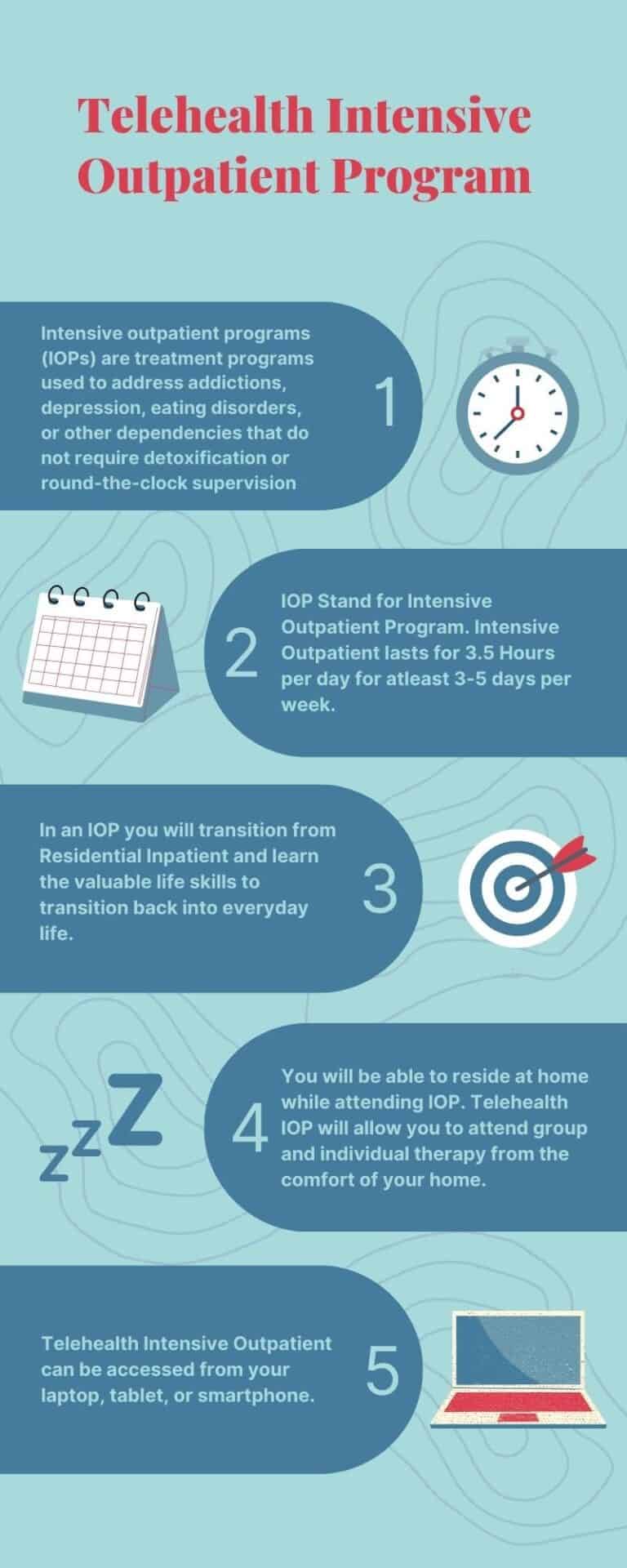Why an Intensive Outpatient Program (IOP) is Crucial for Lasting Recovery.
Wiki Article
The Effect of Holistic Therapies on Mind-Body Recovery in an Extensive Outpatient Program
In the realm of extensive outpatient programs, the incorporation of alternative therapies has actually stimulated significant passion and argument amongst professionals in the field of psychological wellness and wellness. The exploration of alternative strategies, such as yoga, meditation, acupuncture, and mindfulness techniques, questions concerning their performance in promoting mind-body recovery for people undergoing therapy. As the need for detailed and integrative treatment expands, understanding the influence of these holistic treatments within the organized structure of an extensive outpatient program becomes significantly critical. The possible synergy between traditional healing methods and alternative methods in cultivating all natural well-being remains a subject ripe for exploration and analysis.Integrating Holistic Therapies in IOP
Integrating all natural treatments right into Intensive Outpatient Programs (IOP) can improve the general well-being and therapy outcomes of individuals seeking mental health and wellness support. Alternative therapies focus on dealing with the whole individual, attending to not just the symptoms yet also the underlying root causes of psychological health and wellness concerns. By integrating techniques such as yoga exercise, meditation, art therapy, and acupuncture right into IOP setups, patients can experience a more detailed approach to their treatment.
Advantages of Yoga Exercise and Meditation
By instilling IOP settings with alternative treatments like yoga exercise and meditation, people can access a variety of advantages that add to their mental and emotional health. Yoga, with its focus on physical stances, breathing methods, and mindfulness, can help individuals reduce stress, anxiety, and anxiety. The practice of yoga advertises leisure and improves overall mood by launching endorphins, the body's all-natural feel-good chemicals. In addition, yoga improves self-awareness and cultivates a sense of inner tranquility, which can be specifically beneficial for people going through intensive outpatient therapy.
Acupuncture for Mind-Body Healing
Acupuncture, a conventional Chinese medication practice entailing the insertion of slim needles into details points on the body, supplies an unique approach to mind-body healing by targeting energy flow and promoting alternative health. This old strategy is based upon the concept of Qi, the body's vital force, streaming along meridians or pathways. By stimulating specific acupoints, acupuncturists intend to restore the equilibrium of Qi, which is believed to be vital for general health and wellness and wellness.
In the context of mind-body recovery, acupuncture has actually revealed appealing lead to decreasing anxiety, anxiousness, and clinical depression by regulating the body's physiological action to these problems. Research study suggests that acupuncture can aid release endorphins, the body's all-natural pain relievers, and manage natural chemicals to enhance mood and emotional wellness. In addition, acupuncture sessions are often come with by a sense of relaxation and tranquility, which can add to an extra well balanced mindset.
In addition, acupuncture is increasingly being integrated into Western medication practices to enhance conventional therapies for various mental health conditions, offering an alternative strategy that thinks about the interconnectedness of the body and mind in advertising healing and health. Intensive Outpatient Program (IOP).
Mindfulness Techniques in Therapy
Broadening on the realm of alternative treatments, mindfulness strategies play a pivotal role in treatment by promoting a deeper connection between the mind and body for overall well-being. In the context of an intensive outpatient program, including mindfulness methods can aid individuals establish self-awareness, manage feelings, and reduce anxiety degrees.Mindfulness strategies can additionally aid in damaging the cycle of unfavorable idea patterns and habits that the original source may add to mental wellness difficulties. By encouraging people to observe their thoughts without accessory or judgment, mindfulness fosters a feeling of acceptance and compassion in the direction of oneself (Intensive Outpatient Program (IOP)). This practice can lead to boosted psychological strength, improved coping mechanisms, and a better feeling of inner tranquility. Eventually, incorporating mindfulness strategies into therapy plans can equip individuals to actively take part in their recovery journey and promote alternative well-being.

Evaluating Holistic Treatments' Efficiency

Qualitative assessments, on the various other hand, include gathering subjective responses from individuals concerning their experiences with alternative treatments. This qualitative information can use important understandings right into the perceived advantages of these treatments on individuals' general well-being, lifestyle, and coping mechanisms. By integrating measurable information with qualitative feedback, scientists can gain a more alternative understanding of the efficiency of these treatments in promoting mind-body healing within an intensive outpatient program. Such evaluations are crucial for notifying evidence-based practices and optimizing alternative therapy approaches for individuals looking for extensive wellness.
Conclusion
Finally, the integration of all natural treatments such as yoga, meditation, acupuncture, and mindfulness strategies discover this in an intensive outpatient program can have a significant influence on mind-body recovery. These treatments use a more detailed strategy to treatment by resolving the physical, psychological, and spiritual aspects of a person's health - Intensive Outpatient Program (IOP). Examining the efficiency of these holistic treatments is vital in understanding their possible benefits in improving the overall healing procedure for individuals in an outpatient setupReport this wiki page